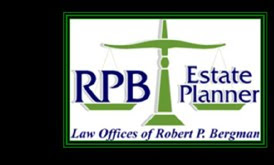Benjamin Franklin is largely known today for his key roles in the American Revolution, the formation of the United States, and his diplomacy with France. But Franklin was also a very successful businessman. Starting with absolutely nothing, he built a substantial fortune. And he capped it off by demonstrating keen skills developing his estate plan. His approach to estate planning is addressed in a posting by my WealthCounsel colleague, Suzann Beckett who practices in Connecticut. I hope you enjoy this quasi history experience while admiring Ben Franklin’s adroit estate planning skills.
Estate planning, the Franklin way
The subject of Ben Franklin came up the other day in conversation. More specifically, the subject of Ben Franklin's visionary approach to estate planning, came up during a discussion of how the average person can make the most of their wealth for posterity.
Benjamin Franklin was many things. Born into humble circumstances, Mr. Franklin very literally ran away from home, then followed up his running away by working, innovating, persevering, and struggling to ultimately become one of young America's wealthiest and most respected citizens. He knew a thing or two about math and the compounding of interest, too.
For those who are truly curious, a version of Benjamin Franklin's Last Will and Testament is available online, from the Franklin Institute. Included is a codicil to the original Will, that should give anyone pause. Franklin's significant wealth is apparent, as is evidenced by the extraordinary number of homes, land, and valuables he details in his Will. But the relatively minor sum of one-thousand pounds sterling mentioned in the codicil, which would be equivalent to roughly $4,000 at the time – is particularly impressive for those of us who would like to make an impact on the generations to follow, even if we do not have the financial capacity to astound the neighbors at the moment.
Franklin specified that the money should be held in trust. Two trusts, actually. One-thousand pounds sterling was provided to the city of Boston, where Franklin was born, and one-thousand pounds sterling was given to Philadelphia, the city that is most commonly associated with Franklin as his home. Both funds were specified to be held and invested, in a specific manner, and maintained for two-hundred years. A significant amount of time, certainly. But Franklin wasn't looking for returns that could be looked down on as small potatoes. He was looking to shake the world. And he did. He has. He continues to, and will for years to come.
You see, Franklin's $4,000 investment has grown to millions of dollars in the interim. The funds he put away for posterity have done exactly what he hoped they would do. And through careful management, they have continued to grow, and expand in value through good times and bad.
Now admittedly, most of us don't think two-hundred years into the future – and most of us don't have massive estates like Mr. Franklin had. But almost all of us can find a way over the course of our working lives to put away a few dollars in the hopes that we can make the lives of our children and grandchildren more comfortable and satisfying than ours may have been.
If Franklin's Will proves anything, it is a tangible demonstration of how a well intentioned gift, well managed, well planned, and well executed, can change the lives of generations to follow.
It's something to think about, isn't it?
Benjamin Franklin exercised far more farsightedness in his estate plan than most of us feel the need for. But Franklin did reveal the powerful benefits to be gained from well thought out plans. His clever employment of the principal of compounding into his estate plan is admired to this day. Bravo to Benjamin Franklin – for executing an estate plan that has spanned several centuries. I am available to assist you with an estate plan to span a decade or two, and I would enjoy the challenge of assisting you with an estate plan for several centuries……if you wished to follow the lead of Benjamin Franklin.






No comments:
Post a Comment